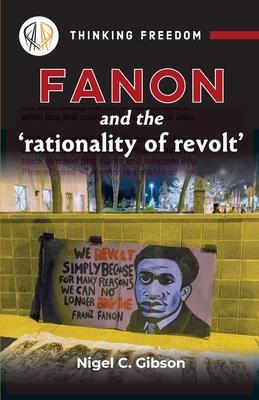We inhabit extraordinary times: times in which we are acutely aware of the intensity of what revolutionary thinker Frantz Fanon called "the glare of history's floodlights." The velocity and scale at which the revolt against police murder that began in Minnesota after the death of George Floyd on May 25th and moved throughout the US, and then other parts of the world, was astonishing. It was impossible to predict, but then, in retrospect, it is George Floyd's death becomes a nodal point: calling for action as well as rethinking and self-clarification. Thinking about this moment with the world revolutionary Frantz Fanon, we need to be aware of continuities and discontinuities -- or, as he puts it, opacities -- between the ages, his and ours. Fanon is always speaking to us, but often in ways we cannot hear. We have to work to listen to him and to understand the new contexts and meanings in relative opacity. It is this constant dialogue that helps illuminate the present and enable ongoing fidelity to Fanon's call in the conclusion of The Wretched of the Earth the necessity to work out new concepts to confront one of Fanon's greatest concerns, the betrayal of the revolutionary movement. In this pamphlet we consider how Fanon's idea of liberation is connected with "the rationality of revolt." The practice of engaging Fanon not only with revolt but with the reason or rationality of revolt connects with Fanon's idea of how this liberated humanity is a product of a new consciousness of collectivity open to rethink everything.

We inhabit extraordinary times: times in which we are acutely aware of the intensity of what revolutionary thinker Frantz Fanon called "the glare of history's floodlights." The velocity and scale at which the revolt against police murder that began in Minnesota after the death of George Floyd on May 25th and moved throughout the US, and then other parts of the world, was astonishing. It was impossible to predict, but then, in retrospect, it is George Floyd's death becomes a nodal point: calling for action as well as rethinking and self-clarification. Thinking about this moment with the world revolutionary Frantz Fanon, we need to be aware of continuities and discontinuities -- or, as he puts it, opacities -- between the ages, his and ours. Fanon is always speaking to us, but often in ways we cannot hear. We have to work to listen to him and to understand the new contexts and meanings in relative opacity. It is this constant dialogue that helps illuminate the present and enable ongoing fidelity to Fanon's call in the conclusion of The Wretched of the Earth the necessity to work out new concepts to confront one of Fanon's greatest concerns, the betrayal of the revolutionary movement. In this pamphlet we consider how Fanon's idea of liberation is connected with "the rationality of revolt." The practice of engaging Fanon not only with revolt but with the reason or rationality of revolt connects with Fanon's idea of how this liberated humanity is a product of a new consciousness of collectivity open to rethink everything.